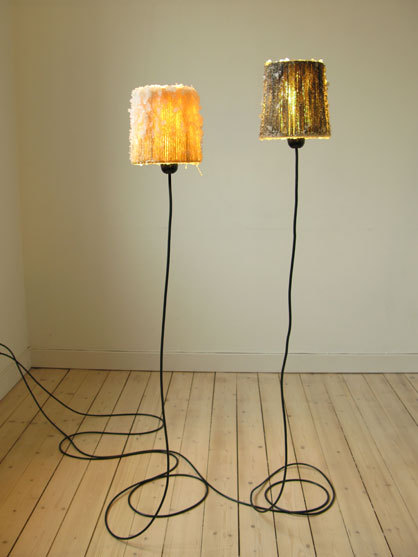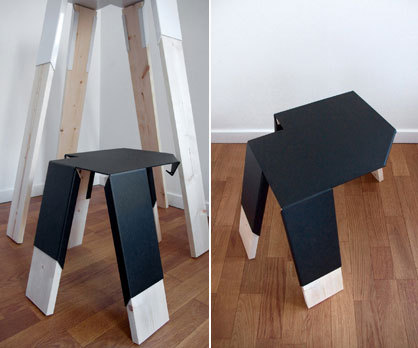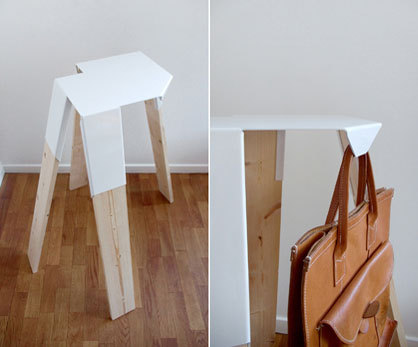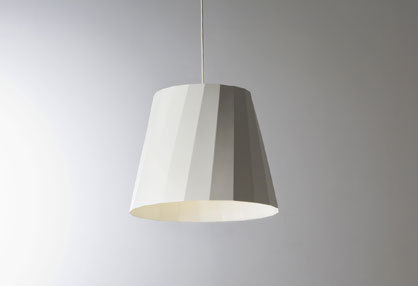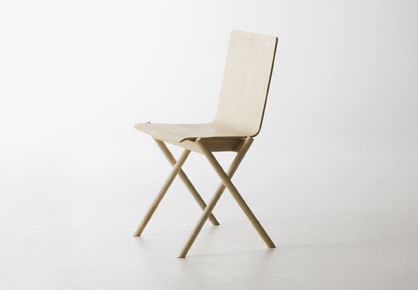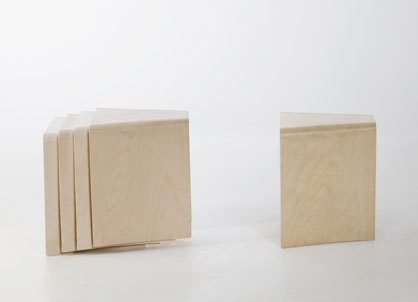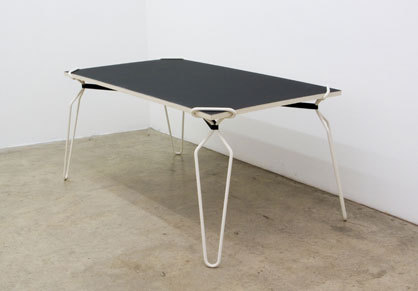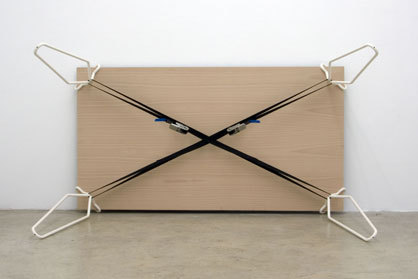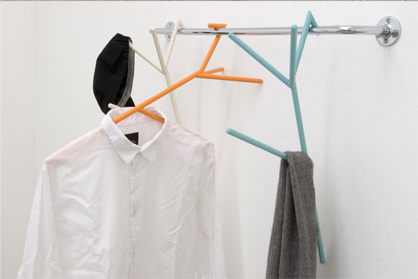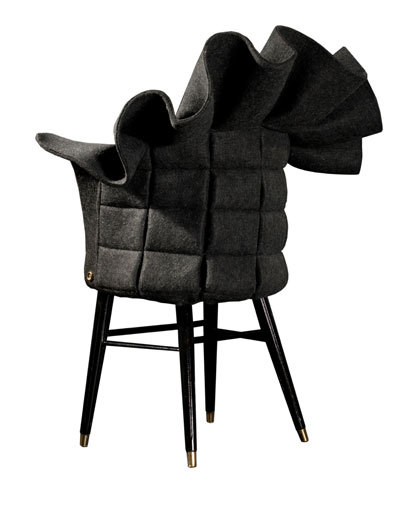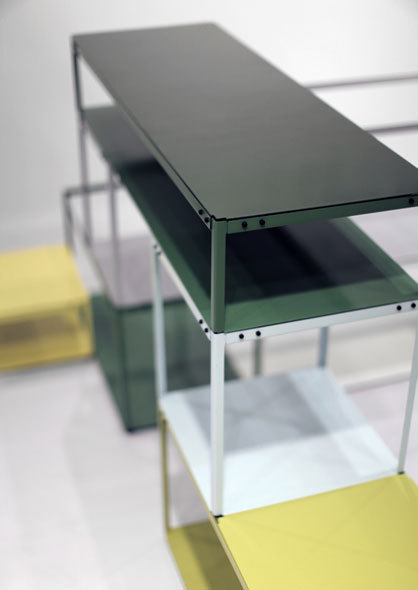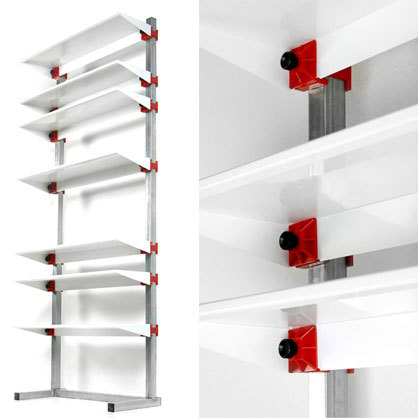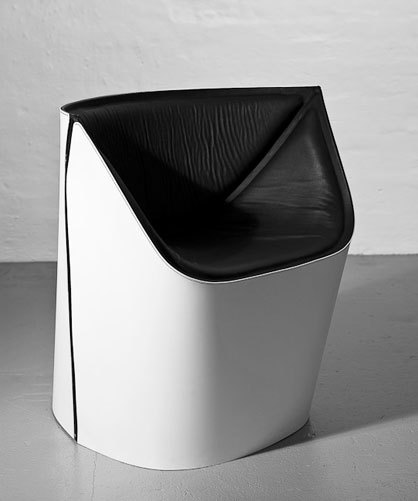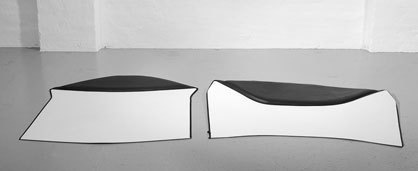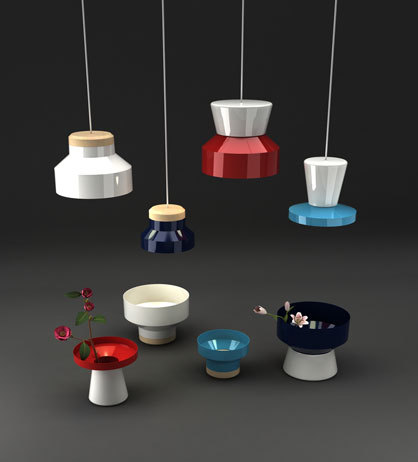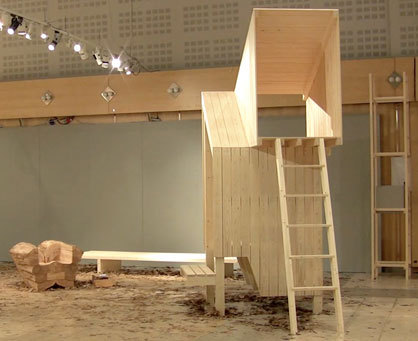News from the Greenhouse
Text by Line Numme
Zürich, Switzerland
05.03.09
Selected novelties from the Stockholm Furniture Fair 2009, Part II
It is noticeable that the designers and design students are increasingly aware of the well-deserved attention which is being paid to them – the presentations are becoming more and more professional, the press folders are stylishly prepared, and if an exhibitor is asked for an explanation, the immediate response is two compact sentences which form a description of the exhibit which is almost ready for publication. As a closely involved medium we won't of course complain about this highly convenient approach. After all, a competent, well-presented show is almost a necessity nowadays, especially as the exhibitions are often staged by prestigious designers and architects. In spite of this the perfection with which the stands of many of these young designers are equipped sometimes prevents the experience of being able to discover something really new, unusual and courageous. One could almost wish that these designers would present their working methods and professional background to the manufacturers, instead of a finished product which is ready to go into series production – not least in order to highlight the designer's own skills.
By comparison the atmosphere at Stockholm's Greenhouse was unconventional and lively, due in particular to the restrained architecture of the exhibition itself. The spatial concept designed by the Swedish architects TAF did not contain individual, separated booths á la Salone Satellite, but featured an open-plan structure which turned the Greenhouse into an inspiring overall presentation of international designers, in particular from Scandinavia.
Den undre gränsen and Upplysningen by Apocalypse, Sweden
The floor covering, a kind of modern rubber parquet, was inspired by the classical herringbone pattern. The material is made to a 95% extent from recycled products: used rubber tyres are cut into small pieces, any textile fibres and metal components are removed and the remainder is then pulverised. The resulting powder is then mixed with plastics which are recycled from used packaging, melted down again with a patented molecule and processed into strips.
The lamps don't consist of cut central-European crystal but have been cultivated in Malmö from crystallised arrangements of mineral salts. These amazing crystal structures can be allowed to grow on the basis of crystallisable organic bonding and mineral salts. In addition they are biologically degradable. The lamps, suspended on thin transparent filaments, seem to float in the room and have something highly mystical about them.
Apocalypse has set itself the task of combining design with sustainability and in their design laboratory in Malmö they use chemistry and technology to develop exciting products which provoke a different point of view and encourage us to look at objects in a unique light.
Switch by Veronica Eklund, Sweden
Veronica Eklund enjoyes working with a generally known standardization where the origin is recognizable. She takes a step further in combining the well-known with something more personal and tailored. Switch is the table that can become a stool or the opposite. The planks of standard size wooden material can easily be custimized in length.
Diagona, Risti and Trapezoid by Sathoshi Yoshida, Finland
The series of three pieces fit perfectly together and seem to be the embodiment of scandinavien design, although the designer is originally from Japan. The table and chair are made out of solid birch wood and lamitated birch veneer. The wooden cross frame of the chair is aimed to create strong construction with less material. It gives a similar visual impression as a metal framed stackable chair with a delicate and light weight. The simple but also characteristic lamp shade gives the thought of movement within the space. The concept of the stacking system of the stools was inspired by the way shopping carts connect with one another.
Crutch and Phasmatodea by Nicola from Bern, Switzerland
Nicola Enrico Stäubli explores a new form of customisation: Since the knowledge of the consumer needs will always be limited, he designs with a focus on the greatest possible flexibility. Consumers take on the role of co-designers.
The trestles Crutch, are ment to support any tabletop. Metal frames are put over the edges of a tabletop and contracted with lashing straps creating a highly solid linkage. Other than conventional trestles it causes a table with an unitary look.
This new type of coat hanger sticks to a conventional towel rail. Once flipped over it turns into a coat hook. This double function brings along a flexible use of the object.
Re-cover and Acoustic Panel by Fredrik Färg, Sweden
Re-cover – costume making dresses for old chairs. The project has been inspired by classic menswear, such as suits and dinner jackets that never go out of style. The chairs former backrests get removed and replaced with a new textile structure of mouldable polyester felt. The chair together with the textile is baked in a big oven that hardens the textile around the chair. By this innovative technique the textile still have the feeling of being a textile but also becomes a supporting structure.
Butler and Flow by Berg & Bleken, Norway
With its top-down form the Flow standard lamp creates a highly unusual effect. By directing the light downwards it provides an unusual form of indirect lighting which spreads out over the floor. A clear contrast is created by the formal idiom of the Butler, whose linear shape states unmistakably what it was conceived to be and at the same time turns it into a strong, attractive object.
Crate shelf by Martin Born, Finland
The Crate Shelf is a free-standing storage system which can be extended in all directions. With its diverse colours and element sizes it offers a wide range of possibilities in the architectural design of interiors.
Bau shelves by Jan-Philipp Wittrin POG, Germany
POG is an interdisciplinary team of designers and artists from Berlin, whose concept is to take 'banal marginal products, so-called non-designs' and use them as the basis for high-quality products. For the Bau shelves, industrially produced sign clamps are used as the connecting element between the supports and the shelving, which is made from folded aluminium sheeting, and angle brackets. This enables the Bau shelf to be assembled quickly and the height of the individual shelves can be variably adjusted.
Tubu by Mario Guidarelli, Skala Design, Denmark
From two flat parts zipped together evolves a comfortable easy chair. A clever idea how to use little material to form a beautiful volume.
Shellamp and Friendly Office Lamp by Jarl Fernaeus, Sweden
Shellamp and Friendly Office Lamp by Jarl Fernaeus
The form, expression and design were the central aspects of these creations. The result is friendly forms and the corresponding colours which are what they seem to be and are easy to integrate into existing interiors.
Odd Family by Jonas Wagell, Sweden
A series of Lamps, Bowls and Vases in odd cominations. The items have a playful and strong character given by the comnination of basic shapes and materials such as birch, ceramics and aluminium.
The White Tower by Worapong Manupipatpong, Konstfack, Sweden
The White Tower by Worapong Manupipatpong, Konstfack
Garden furniture – this was the theme of Stockholm's Konstfack for this year's exhibition in the Greenhouse. In its dimensions the contribution of the Thai designer Worapong Manupipatpong, a wooden summer house, can be classified somewhere between architecture and furniture design. "I regard this piece of garden furniture as an interface between interiors, in other words artificial spaces, and exterior spaces, in other words nature," says the designer. This approach led to the development of the White Tower, a hybrid combination of a garden bench with a roof and a raised hide.


